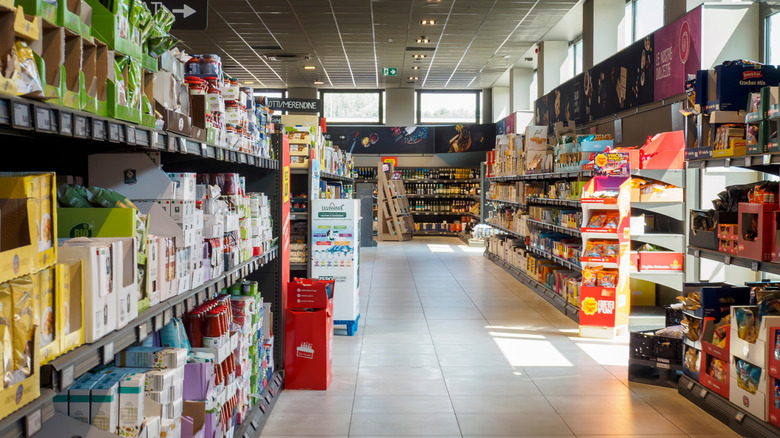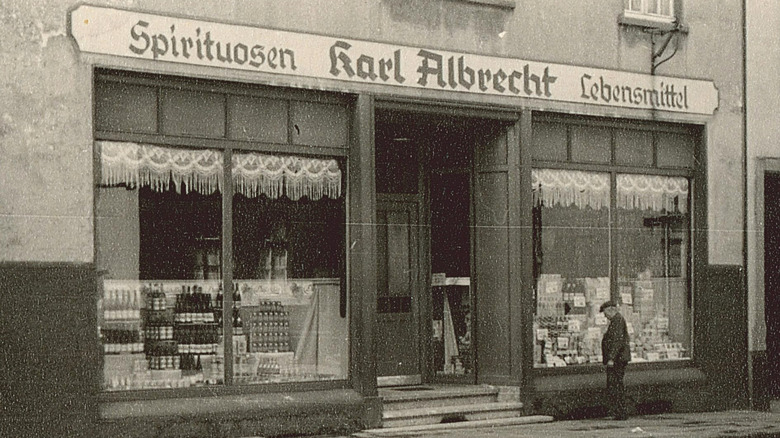The Cigarette Dispute That Led To Aldi's Inception
Most shoppers know Aldi for bargain prices and stripped-down stores, but few realize the chain's modern shape began with a squabble over cigarettes. By the start of the 1960s, founders Karl and Theo Albrecht clashed on whether their shops should sell tobacco. Karl worried that stocking packs would invite petty theft, while Theo saw cigarettes as a product customers expected. What might have been a minor disagreement in another family ended up dividing the business in two — a decision that still echoes through Aldi's identity today.
That tension came years after the brothers had already taken their family shop far beyond its modest beginnings. Aldi's German heritage stretches back to 1913, when their mother, Anna Albrecht, opened a neighborhood store in Essen. After the war, Karl and Theo came home, reopened the doors, and began expanding with an eye for frugality and practicality. Aldi's first location was a quaint little corner store, but the Albrechts quickly multiplied their reach, filling German cities with their no-nonsense grocery model.
By the time cigarettes became the sticking point, the Albrechts had already distinguished themselves by trimming excess from the shopping experience — shelving goods directly from pallets, limiting selections, and streamlining costs. The argument didn't slow Aldi down; it set the stage for a north-south divide that would guide the company's path for decades to come.
From cigarettes to a divided empire
When the Albrecht brothers split, Germany ended up with two rival grocery empires. Theo guided the northern stores under the Aldi Nord banner, while Karl steered the southern group as Aldi Süd. Shoppers who lived along the so-called Aldi border noticed the differences right away — Nord kept a reputation for being more old-school and utilitarian, while Süd felt cleaner, more polished, and a step ahead.
Among the things you probably didn't know about Aldi is that the German discount empire has been tied to an American favorite for decades. Theo's Aldi Nord made its biggest move in 1979, when it snapped up Trader Joe's, a quirky California chain beloved for its loyal customers and unique product mix. Karl's Aldi Süd, meanwhile, became the face of Aldi abroad, planting roots in the American Midwest during the 1970s and steadily expanding across the eastern half of the U.S. Today, Nord and Süd remain distinct companies, each running thousands of stores and serving millions worldwide. All of it traces back to that cigarette quarrel — proof that a tiny dispute between siblings can end up shaping how entire nations stock their kitchens.

